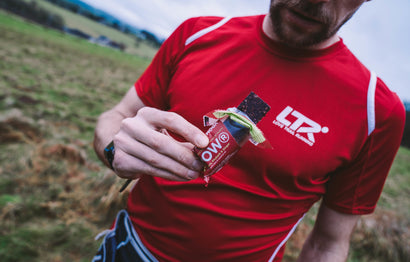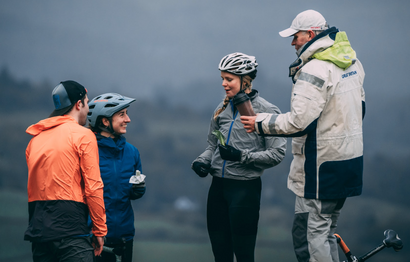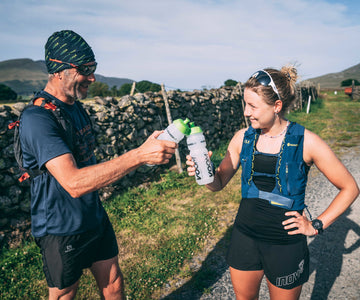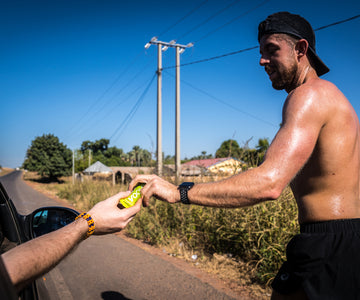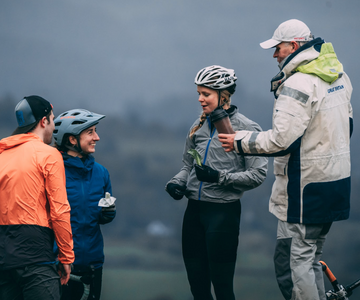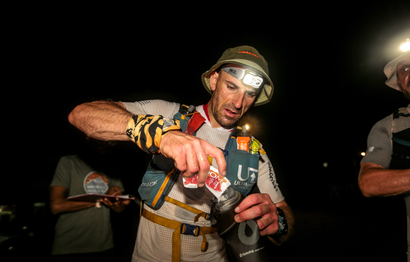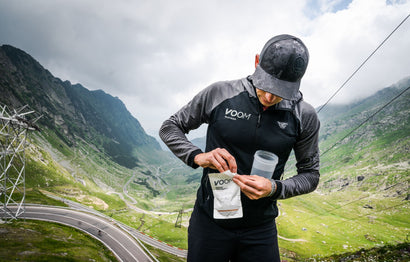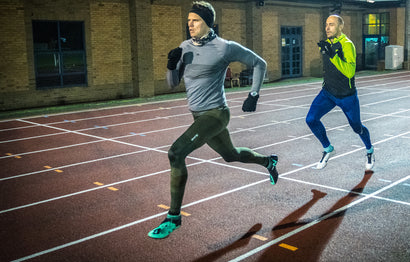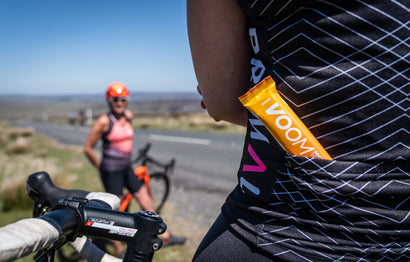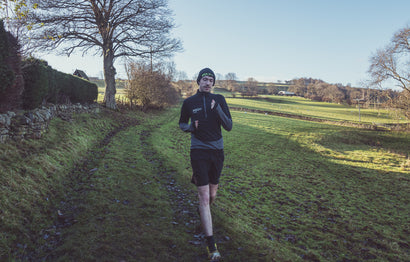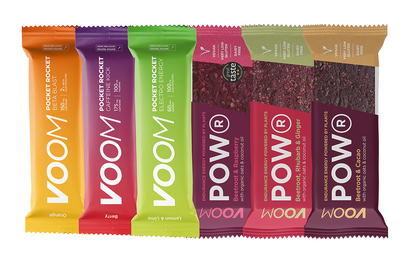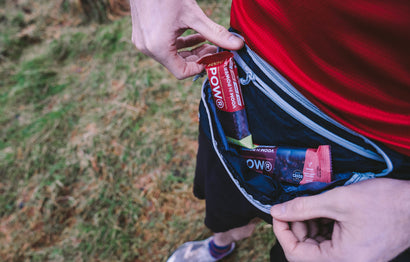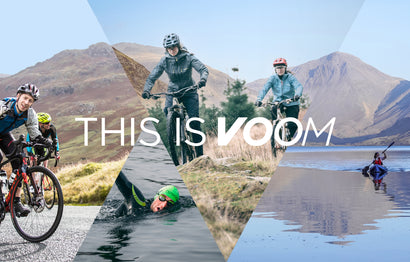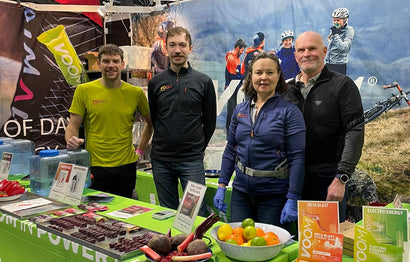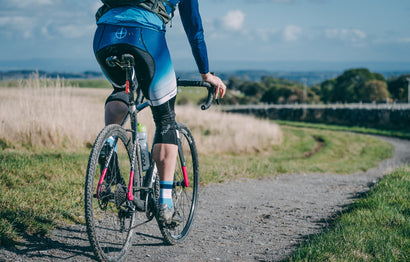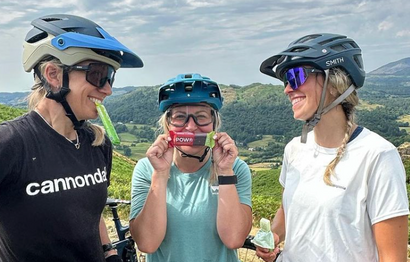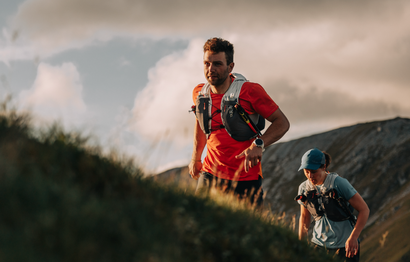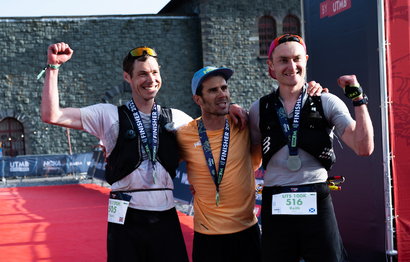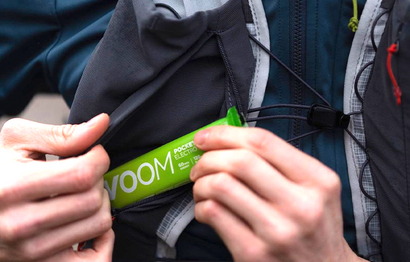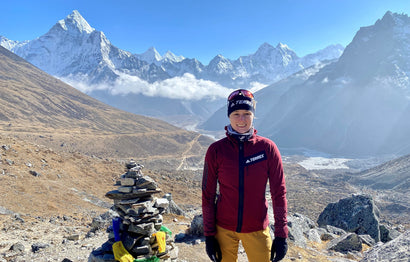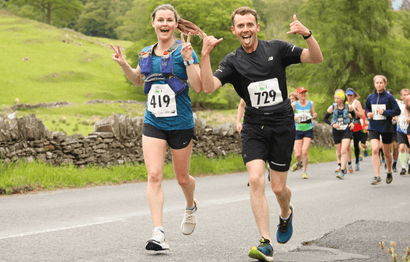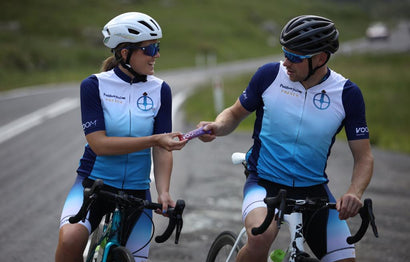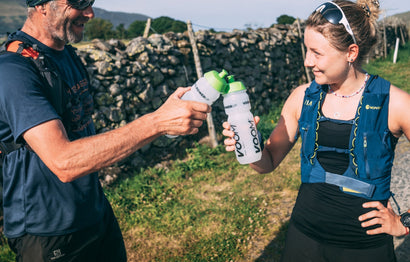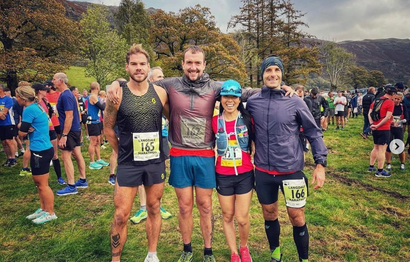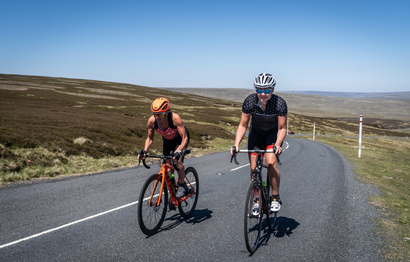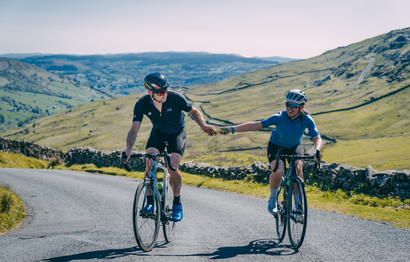If you’re gearing up to tackle the rugged trails of the UK, there’s something you should know. Training for mountain trail running isn’t just about pushing through those uphill climbs and classic mountain ridge assaults with the Lord of the Rings theme tune in your ears (I wish it was!).
I’m here to share five crucial aspects of mountain training that might not be on your radar, complete with tips. We’ll cover how to build a solid endurance base, the importance of effective strength training, what your nutrition should look like, and why mental toughness is key. Plus, we’ll touch on the essential skills for staying safe and navigating the unpredictable mountain terrain. Let’s dive in and elevate your training to the next level!
1) Build a Solid Endurance Base First
It’s not ALL ABOUT Uphill Training!
While specific uphill training is vital for mountain sports, establishing a solid endurance base is equally important. This foundation improves cardiovascular fitness and overall stamina, which are crucial for handling the varied demands of mountain terrain.
Evidence-Based Insights:
Research supports the need for a well-rounded endurance base. A study published in the Journal of Sports Sciences emphasises that building aerobic capacity through long, steady-state efforts enhances overall endurance and performance in endurance sports, including trail running and mountain biking (Jeukendrup & Killer, 2014). Aerobic base training improves the efficiency of oxygen utilisation and helps delay the onset of fatigue during prolonged exertion.
Additionally, a review in Sports Medicine highlights that endurance training should include a mix of long-duration, moderate-intensity sessions and interval training to optimise both aerobic and anaerobic systems (Basset & Boulay, 2003). This approach is particularly relevant for mountain sports, where athletes encounter both sustained efforts and high-intensity bursts, such as climbing steep ascents or navigating technical descents.
Case Study: Jack Scott’s Spine Race Victory
Jack Scott’s victory in the Spine Race is a testament to the importance of a solid endurance base. The Spine Race, known for its gruelling 268-mile course navigating the length of the Pennine Way, features relentless elevation changes and harsh weather conditions. Scott’s training regimen highlighted the importance of building a broad aerobic base before focusing on specific uphill workouts.
His preparation included long, steady-state runs on less challenging terrain to develop his overall endurance. For instance, Scott would often run 30 miles on flatter trails to build his aerobic capacity, progressively increasing the intensity and duration of his sessions. This approach allowed him to handle the extended and varied demands of the Spine Race effectively. By focusing on endurance first, Scott was able to manage the diverse challenges of the race and ultimately claim victory.
2) Strength Training is Paramount
Don’t Neglect This Essential Component
Strength training is crucial for mountain sports, as it enhances power, stability, and resilience against the physical demands of uneven and steep terrain.
Evidence-Based Insights:
Strength training’s role in enhancing performance in mountain sports is well-documented. A study in the Journal of Strength and Conditioning Research found that strength training, particularly exercises targeting the lower body and core, significantly improves running economy and performance in trail running (Snyder et al., 2015).

Lower body strength is essential for climbing steep gradients and maintaining control on technical descents, while core strength aids in overall stability and injury prevention in endurance sports. Moreover, a review in Sports Medicine underscores that strength training can reduce the risk of overuse injuries by improving muscular balance and joint stability (Bishop et al., 2009). This is particularly relevant for mountain biking and mountain running, where participants frequently encounter rough and uneven terrain that place significant stress on muscles and joints.
Case Study: Tom Evan’s Strength Training Regimen
Tom Evans, a prominent ultrarunner, integrates a rigorous strength training routine into his preparation. Known for his performances in mountain ultras, Evans’s strength training focuses on lower body and core exercises. His regimen includes squats, deadlifts, and step-ups to build the strength needed for climbing and descending steep trails. For example, Evans might perform weighted squats to enhance leg power or step-ups with additional weight to simulate the demands of uphill running.
Evans’ strength training also includes core exercises; planks and Russian twists improve stability and reduce the risk of injury. This comprehensive strength program complements his endurance training, helping him maintain control and power during mountain races. By focusing on strength training, Evans ensures that his body can handle the varied demands of mountain terrain in both training and competition, and perform optimally.

3) Nutrition - Prioritize Carbs for Mountain Running and Biking
Proper nutrition is crucial for sustaining energy and therefore performance, during mountain sports. Carbohydrates, in particular, play a key role in supporting prolonged and intense physical efforts.
Evidence-Based Insights:
Carbohydrate consumption is essential for maintaining glycogen stores and supporting performance in endurance sports. Research published in Sports Medicine highlights that carbohydrate intake is crucial for athletes engaging in prolonged and high-intensity activities, as helps delay fatigue and maintain performance levels (Jeukendrup, 2010). Carbohydrates are the primary fuel source for high-intensity exercise, making them vital for mountain trail running and off-road biking, which involve frequent climbs and sustained efforts.

A study in the American Journal of Clinical Nutrition highlights that consuming carbohydrates before and during exercise can improve endurance and performance by maintaining blood glucose levels and delaying the onset of fatigue (Coyle, 2004). Specifically, research suggests that endurance athletes should aim for a carbohydrate intake of about 30 - 60 grams per hour during prolonged exercise lasting more than 1 hour. For ultra-endurance events or more intense efforts lasting over 150 minutes, the recommendation can increase to up to 60 - 90 grams per hour (Jeukendrup & Killer, 2014).
This range is effective in maintaining energy levels and enhancing performance during extended or high-intensity mountain activities.
Case Study: Kilian Jornet’s Carb-Focused Diet
Kilian Jornet, a world-renowned mountain runner, exemplifies the importance of carbohydrates in his diet. Jornet’s meals are heavily focused on high-carb foods to support his intense training and racing efforts. His diet includes substantial portions of pasta, rice, and fruits, which provide the necessary replenishment of his glycogen stores for prolonged exertion.
During races and training sessions, Jornet relies on quick-digesting carbs such as energy gels and bars to maintain energy levels. His approach contrasts with trendy low-carb diets, highlighting the practical necessity of a carb-rich diet in mountain sports. By prioritizing carbohydrates, Jornet ensures that he can sustain high-intensity efforts and recover effectively, supporting his exceptional performance in mountain races.
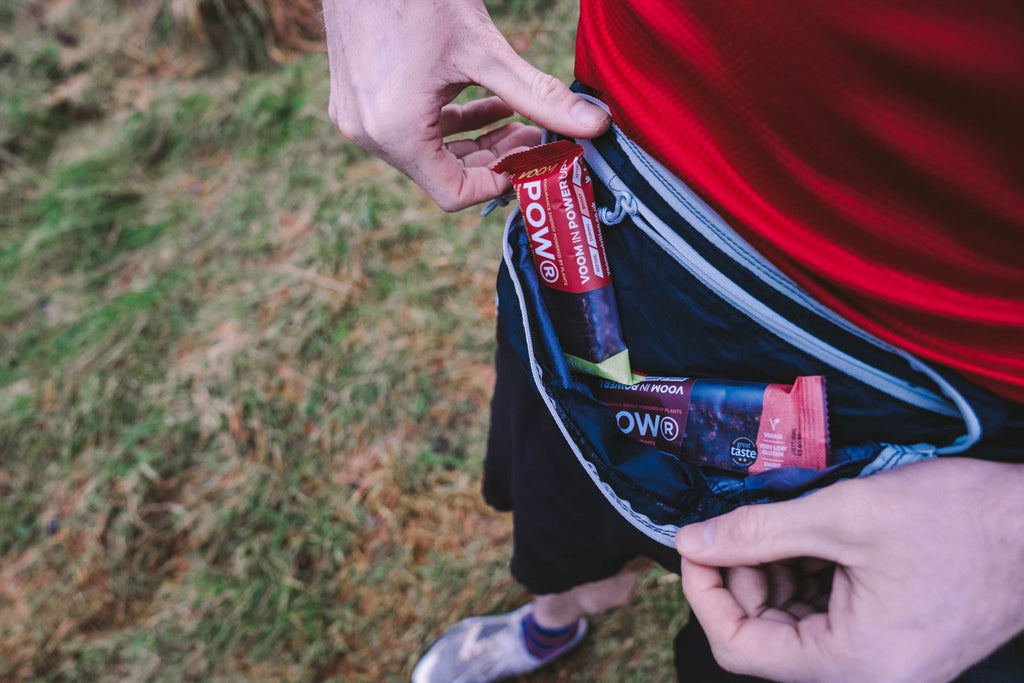
4) Mental Toughness is Key
Prepare for the Challenges Beyond the Golden Hour
Mountain training and events involve significant mental resilience, as athletes must adapt to harsh conditions and push through challenging moments.
Evidence-Based Insights:
Mental toughness has been shown to significantly impact performance in endurance sports. A study in the Journal of Sports Sciences highlights that mental toughness, including factors such as confidence, focus, and stress management, is a key predictor of performance in endurance athletes (Gucciardi et al., 2015).
Developing mental resilience helps athletes cope with the physical and psychological demands of mountain sports, including adverse weather conditions, extreme fatigue and challenging terrain.
Furthermore, research in Sport & Exercise Psychology Review emphasises the role of mental training techniques, such as visualisation and mindfulness, in enhancing performance and coping with stress (Birrer et al., 2012). These techniques can help athletes maintain focus and motivation during difficult conditions, which is essential for mountain trail running, as we all know, there is always another hill!
Case Study: Ross Edgley’s Mental Resilience
Ross Edgley, known for his extreme endurance feats, demonstrates the importance of mental toughness in mountain training. Edgley’s adventures, such as swimming around Great Britain, required significant mental resilience to overcome physical discomfort and isolation over long periods of time.
Edgley’s training involved preparing for challenging conditions and practising mental techniques to stay motivated. For instance, during his Great British Swim, among many hardships, he faced cold water, severe weather, and long hours at sea. By using visualisation and stress management techniques, Edgley was able to maintain focus and push through these difficulties to continue swimming. His experiences highlight the importance of mental strength in navigating the unpredictable and demanding nature of mountain environments. Although his approach to resilience is so much more, visualisation, controlled exposure to adversity, and regular bouts of ‘discomfort training’ are aspects that we can take into our everyday adventure training.
5) Essential Skills—Safety First, Navigational Know-How, and Packing Smart

Proper skills for safety, navigation, and equipment are crucial for ensuring a safe and successful mountain experience. Effective preparation and knowledge can prevent accidents, improve incident response and improve overall performance.
When it comes to mountain trail running, having the right skills can make all the difference. It’s not just about physical fitness; knowing how to navigate effectively and being prepared for emergencies is crucial.
As a coach, mountain leader and having dabbled in my fair share of mountain running and expeditions, here’s my advice:
- Basic Navigation Skills: Mastering navigation is fundamental for any mountain adventure. While I highly recommend using navigation tools like the OS Maps app and FatMap to help you plan and follow your route, it’s important to remember that these apps are not a replacement for traditional map and compass skills. They are excellent tools for planning and real-time tracking, but knowing how to use a map and compass is essential for situations where technology might fail.
- OS Maps App: This app provides detailed Ordnance Survey maps that are essential for understanding the terrain and planning your route. It includes features like route planning, live tracking, and offline access, making it incredibly practical for navigating the mountains.
- FatMap: FatMap offers high-resolution 3D maps that allow you to visualise the terrain and plan your routes effectively. Its interactive features help you explore different routes and assess potential challenges before you even set foot on the trail.
These apps are valuable tools for getting out the door and managing your navigation, but they should be used alongside conventional map and compass skills to ensure you’re fully prepared.
- Emergency Preparedness: Being prepared for emergencies is crucial. Here’s how to ensure you’re ready and know what to do if things go wrong:
- Contacting Mountain Rescue: In an emergency, knowing how to contact mountain rescue services is vital. If you need to call for help, dial 999 or 112 and ask for Mountain Rescue. Provide them with clear details about your location, including any identifiable landmarks or grid references if you can. Always stay calm and provide as much information as possible to help them locate you quickly.
- Leave a Route Card: Before heading out, drop a route card with a local cafe, pub, or accommodation. This card should include your planned route, expected return time, and emergency contact information. If you don’t return as expected, this information will help rescuers locate you more efficiently.
- Use Live Tracking: Tools like Strava or Garmin’s live tracking features can be lifesavers. These platforms allow you to share your location in real time with friends or family. If you run into trouble, rescuers can use this live data to track your last known location and expedite your rescue.
- Carry Essential Gear: Always pack the following essential items:
o Head Torch: Useful for navigating in low-light conditions or if you’re out longer than anticipated.
o Whistle: A crucial signalling device that can be attached to many running pack clips.
o Basic First Aid Kit: Includes items for managing minor injuries and first aid.
o Emergency Snack: High-energy food to keep your energy up if you get stuck or delayed.
o Warm Layer: An additional layer of clothing to help you stay warm if the weather turns cold or if you have to wait for rescue.
As The Adventure Coach, I am deeply invested in your overall development. This includes not just improving your physical fitness but also focusing on your health and nutrition, building mental resilience, and ensuring you have the skills necessary to operate safely in the mountains. My goal is to help you become a well-rounded, confident, and capable mountain adventurer.
Remember, building a strong endurance base is as crucial as the uphill training. Don’t overlook the power of strength training, and fuel your adventures with the right nutrition - carbs are your best friend in the mountains.
Cultivating mental toughness will help you push through the tough conditions, and mastering essential navigation and emergency skills will keep you safe and prepared.
For more insights, tips, and guidance on mountain trail running and biking, visit www.benturneradventure.com. You can also follow me on social media at @BenTurnerAdventure to stay updated and join a community of passionate adventurers. Let’s get out there and tackle those mountains with confidence and skill!



